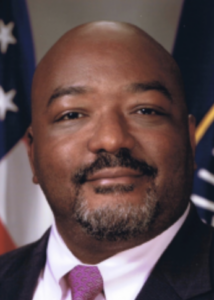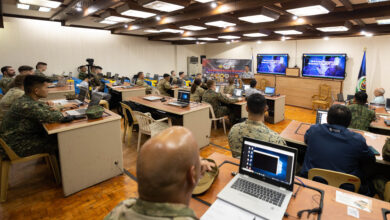In this exclusive interview, The Defense Post sits down with Darrell M. Blocker, a 28-year veteran of the CIA’s clandestine service and newly appointed Senior Advisor at Resecurity.
With a distinguished career that spans counterterrorism, global security operations, and leadership roles within the intelligence community, Blocker brings unparalleled expertise to the evolving field of cybersecurity.
 As digital threats continue to escalate and cyberspace emerges as a critical domain in modern warfare, we explore Blocker’s insights on the integration of cyber intelligence with traditional intelligence disciplines, how private cybersecurity firms can collaborate with government agencies, and the future of global security in the digital age.
As digital threats continue to escalate and cyberspace emerges as a critical domain in modern warfare, we explore Blocker’s insights on the integration of cyber intelligence with traditional intelligence disciplines, how private cybersecurity firms can collaborate with government agencies, and the future of global security in the digital age.
As cyberspace becomes a key area for warfare and espionage, how do you see cyber intelligence evolving in modern intelligence operations?
Cyberspace has been an integral part of warfare and espionage for decades. The number of Intelligence Collection Disciplines (INTs) specifically associated with tracking indications and warnings that uncover potential threats include but are not limited to SONAR, TELINT, and MASINT.
The INTs are always complementary to other disciplines, and any sound intelligence training program will cover every known field because cyber is merely an extension of SIGINT, TELINT, MASINT, and some aspects of HUMINT.
As foreign adversaries ramp up cyber activities, what strategies do you believe the Intelligence Community should adopt to stay ahead?
Foreign adversaries are less of a concern than non-state actors and lone wolves who only seek chaos.
At the same time, the Russians, Chinese, Iranians, and even the North Koreans are keenly aware of the ramifications of cyber attacks, which can easily be launched against their infrastructures.
The Intelligence Community has developed strategies unilaterally and with our Five Eyes coalition partners (UK, Canada, Australia, and New Zealand) that help mitigate both state and non-state actors who threaten global stability.
The West remains the preeminent source of university and post-graduate research institutes, so until China, Russia, and Iran stop relying on Western-educated citizens to create their next generation of cyber tools, the US Intelligence Community and its like-minded partners will keep us ahead of those who wish us harm.
How can proactive measures help prevent attacks before they materialize?
Zero trust architecture is a good start, along with constant monitoring and educating those who hold the keys to the kingdom (USIC and private sector companies and universities), but as long as humans are integral to these processes, they will remain vulnerable.
What are the biggest challenges organizations face in securing their digital systems against advanced cyber threats?
Humans, pure and simple. People are susceptible and vulnerable, so the only way to prevent exposure is to remove the human element.
How can organizations better prepare for these risks?
The best way to prepare is to routinely and consistently demonstrate the vulnerabilities of the systems to those who are systems administrators.
They have to get it right, every day, every time. The enemy only has to get it right once to bring a nation, company, or system to a grinding halt.
How do you see private cybersecurity companies, like Resecurity, working with government agencies to enhance national security?
The private sector is more nimble than the US government, and each has to build trust in one another and put their own interests aside to move towards a more collaborative approach (primarily financial in the corporate sector and almost exclusively “need-to-know” principles from the government sector).
The time to do this is during relative peace because if trust isn’t ironclad or close, it’ll definitely fall apart during times of war.
What unique role can private companies play?
Resecurity has the benefit of having within its ranks both seasoned former government officials and those who only know the private sector, and the combination and collaboration provides a more effective and reliable means of problem-solving.












